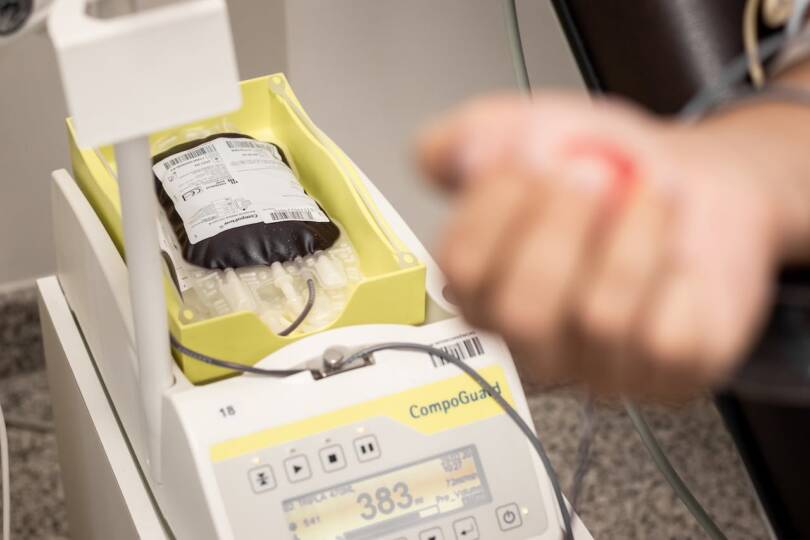wThe realm of healthcare has always thrived on precision and accuracy, especially when it comes to administering treatments. Liquid metering pumps play a pivotal role in this precision-driven environment. These devices, designed to deliver precise quantities of fluids, are critical in various medical applications.
From drug delivery systems to sophisticated diagnostic equipment, their ability to provide exact dosages and maintain controlled flow rates significantly enhances the efficacy and safety of medical treatments.
Role In Drug Delivery Systems
Liquid metering pumps are integral to the success of drug delivery systems. Their precise control over the flow rate is vital for administering exact dosages of medication, a critical factor in treatments ranging from routine prescriptions to life-saving drugs.
These pumps have revolutionized infusion therapy, a common method of drug delivery, particularly in hospital settings. For instance, it is crucial in treatments such as chemotherapy, where the precise timing and dosage of drug administration can significantly impact the treatment’s success.
Advanced metering pumps can automatically adjust the flow rate based on a patient’s specific needs, ensuring a personalized and more effective treatment regimen. For a comprehensive understanding of these advanced pumping solutions, visit knf.com/en/uk and other reputable sites.
Use In Diagnostic Equipment
The accuracy of test results is paramount in diagnostics. Liquid metering pumps in diagnostic equipment, like blood analyzers and chromatographs, ensure the precise movement and mixing of samples and reagents. This precision is essential for producing reliable and accurate diagnostic results, which form the basis of many medical decisions and treatments.
Beyond accuracy, these pumps also contribute to the efficiency of diagnostic procedures. By automating the fluid handling process, they reduce the likelihood of human error and speed up the testing process, allowing laboratories to handle higher volumes of tests with greater reliability.
This efficiency is particularly beneficial in high-throughput environments like medical research labs and large-scale diagnostic centers.
Importance In Dialysis
Dialysis treatment for kidney failure patients is highly dependent on the precise control of liquid flows. Metering pumps in dialysis machines play a critical role in regulating the flow of blood and dialysis fluid. This regulation is essential for effectively removing toxins and excess fluids from the blood, a process that requires meticulous balance and timing.
The reliability and precision of these pumps ensure the dialysis process’s effectiveness and contribute to patient comfort. By carefully controlling the rate and pressure of fluid exchange, these pumps help minimize discomfort and potential complications during treatment, significantly improving patient outcomes.
Application In Surgical Tools
In the operating room, the use of liquid metering pumps in surgical tools, like irrigation systems and suction devices, is critical.
These pumps provide controlled and consistent fluid flow, which is essential for maintaining a clear view of the surgical site and for the effective cleansing of wounds. This control helps surgeons perform procedures with greater precision and reduces the risk of complications.
The precision of liquid metering pumps in surgical settings also plays a key role in infection control. By ensuring adequate and controlled irrigation during surgery, these pumps help effectively wash away debris and reduce the risk of post-operative infections. This aspect is particularly crucial in surgeries that are long or involve a high risk of contamination.
Integration In Laboratory Research
Liquid metering pumps are invaluable in laboratory research, where precision and repeatability are key.
These pumps allow scientists to accurately dispense and control the flow of various fluids, such as reagents, culture media, and samples, ensuring the consistency and reliability of experimental results. This accuracy is crucial for the validation of research findings and for advancing medical knowledge.
By enabling precise and efficient fluid handling, these pumps significantly contribute to the speed and efficiency of research processes. This capability is particularly important in fields like drug development and genetic research, where the ability to conduct experiments accurately and rapidly can expedite medical breakthroughs and the development of new treatments.
Enhancing Patient Comfort And Safety
The direct impact of liquid metering pumps on patient comfort and safety is profound. In therapies like intravenous fluid administration, these pumps precisely control the infusion rate, ensuring that patients receive treatments at a rate that is both effective and comfortable. This precision helps in avoiding complications such as fluid overload or dehydration, enhancing the quality of patient care.
The adaptability of these pumps allows for the customization of treatment plans according to individual patient needs. This feature particularly benefits vulnerable patient groups, such as the elderly or infants, who require more delicate and precise fluid management.
These pumps play a crucial role in personalized medicine by tailoring the flow rates and volumes to each patient’s specific requirements.
The Bottom Line
Liquid metering pumps are a cornerstone of precision in healthcare, playing a critical role in a wide range of medical applications. From ensuring accurate drug delivery and aiding in diagnostics to improving surgical outcomes and advancing laboratory research, their impact is both profound and far-reaching. As technology evolves, the role of these pumps is set to become even more integral in the pursuit of excellence in patient care.









